Tomorrow's nursery starts here! Stay ahead of the curve and receive the latest news on horticultural innovations in your mailbox.
Newsletter

subscribe


Go to previous article

Go to next article

Back to world map
SCROLL DOWN

Read more on the AGOVOR website
It’s all about the user: that is what ensures good uptake of an innovation and what has made GOVOR the robust solution it is today.
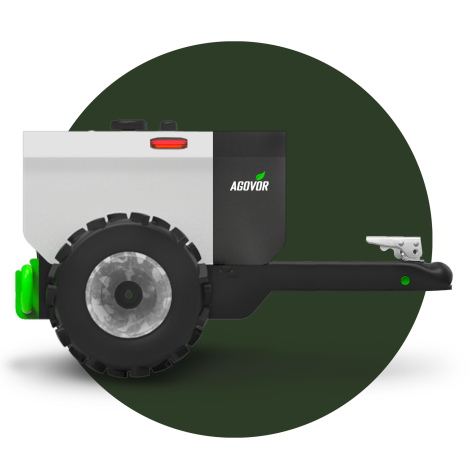
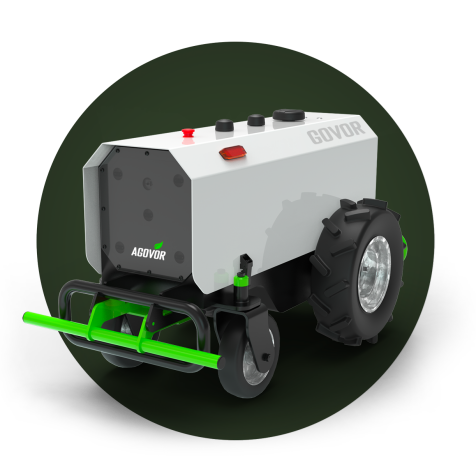
GOVOR is currently in its 4th generation and the team’s R&D journey continues. The next step involves collaborating with industry partners to expand the range of Smart Trailer Attachments and further improve support for the varying needs in the horticulture sector. GOVOR is commercially available, so if you are interested to add this little worker to your team, get in touch with AGOVOR via their website.
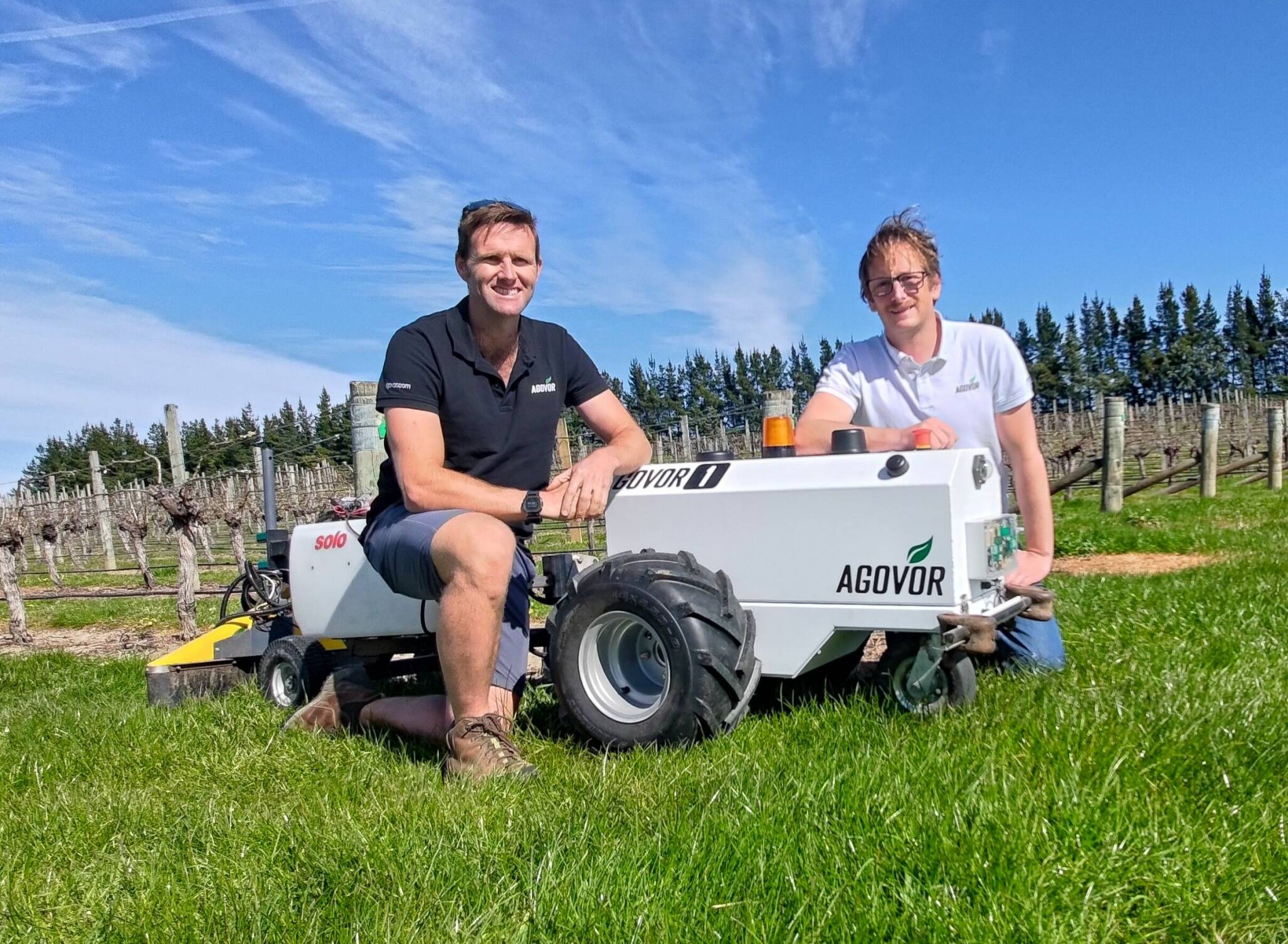
Meet GOVOR®, the electric, lightweight (50 kg) robot designed to automate repetitive outdoor manual tasks in row-based nurseries. GOVOR can tow any attachment with a standard tow hitch and there is a growing number of Smart Attachment Trailers specifically designed for GOVOR. Swappable lithium batteries enable it to work autonomously around the clock. The AGOVOR web portal works from any smartphone or computer to deploy, monitor, and control the autonomous workforce. Growers can use one GOVOR or a whole fleet. Front and rear cameras allow you to check in on your autonomous staff members. “GOVORs have more than one use, so you can have it running as much as you like, year-round and regardless of the season. It has to be worth the investment.”
Like with any piece of new technology, feedback from users is key, and AGOVOR has developed GOVOR technology placing users at the center of their design. Richard: “Part of the excitement has been giving the opportunity to our team members at the nursery to use GOVOR from back when it was basically just bits of wood nailed together and have their feedback on how we can improve it. It’s all about the user: that is what ensures good uptake of an innovation and what has made GOVOR the robust solution it is today.”
New Zealand-based AGOVOR was founded by Richard Beaumont, co-owner of Ardmore Nurseries Ltd., a wholesale plant nursery near Clevedon, Auckland, and automation engineering expert Simon Carroll. “As with many other innovations, Covid-19 was the catalyst. New Zealand was in a full lockdown, our nursery went from 30 to 5 staff, and we were only allowed to look after the plants. That meant about 5 acres each and a lot of repetitive maintenance tasks that needed to be done, like weeding. It got me thinking that we really should look for other solutions,” says Richard.
Richard teamed up with engineer Simon and over the next couple of years, the two men came up with a robot that could go up and down the nursery’s rows in the field. They had to tackle common field-grown nursery challenges, such as narrow rows, multiple plant varieties in one field with different foliage, and the soil, which goes through different phases and structures during the year. Soil compaction is the result of pressure on the soil from machinery, foot traffic, and other activities leading to reduced pore spaces and restricted root growth. It limits nutrient absorption, water infiltration, and ultimately affects crop health. Richard: “Soil compaction is a huge issue for many growers and there hasn’t really been an alternative to the heavy machinery like tractors that growers need to bring into their fields. We wanted to develop something that would be more sustainable and aid in decarbonizing current practices as well.”
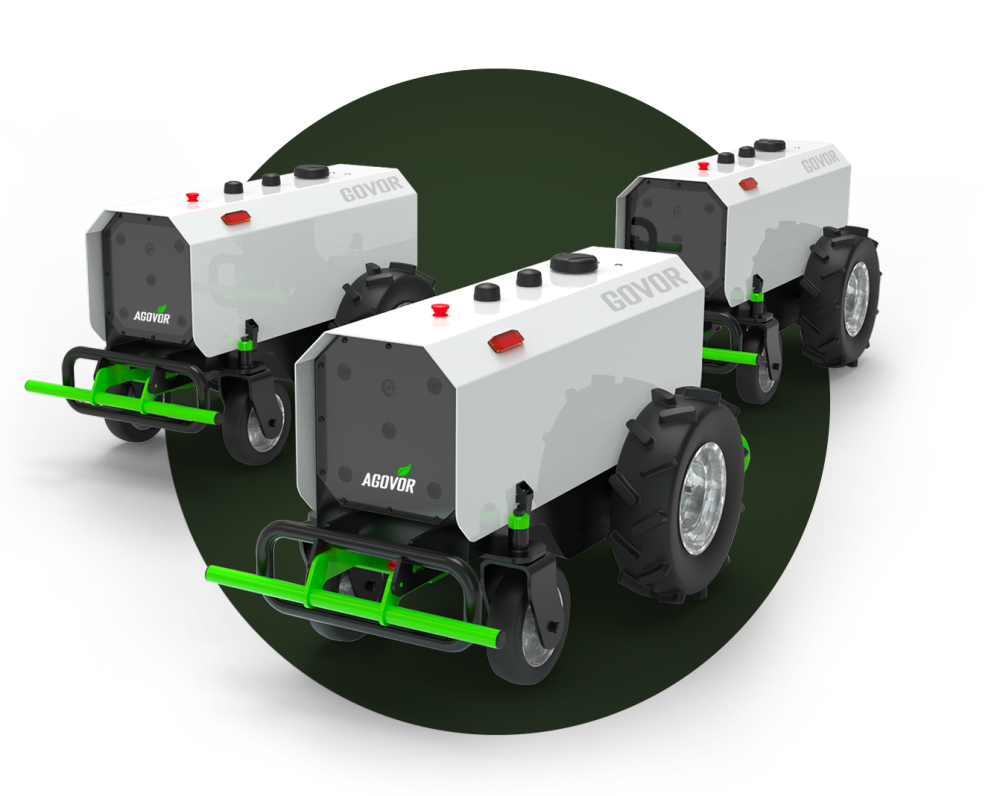
The horticulture sector worldwide faces a pressing challenge: the lack of skilled labor, aggravated by the need for repetitive tasks. Additionally, open-field nurseries deals with another complex problem known as soil compaction. Fortunately, there are innovators addressing these challenges with technology that not only frees humans for more engaging tasks, but also promotes sustainability. Hauling, spraying, mowing, and cultivating: GOVOR®, the autonomous electric mini-tractor can do a variety of jobs, making it a valuable team member for nurseries seeking efficient solutions.
Meet The Electric Mini Tractor Transforming Horticulture
New Zealand

previous

next

subscribe to our newsletter

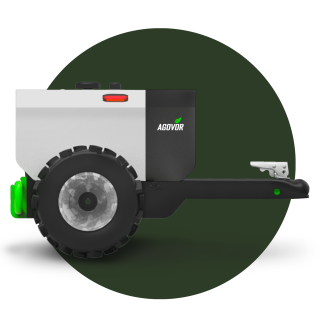
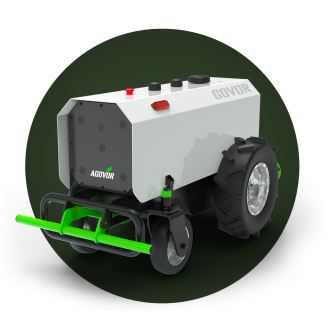

Read more on the AGOVOR website
Meet GOVOR®, the electric, lightweight (50 kg) robot designed to automate repetitive outdoor manual tasks in row-based nurseries. GOVOR can tow any attachment with a standard tow hitch and there is a growing number of Smart Attachment Trailers specifically designed for GOVOR. Swappable lithium batteries enable it to work autonomously around the clock. The AGOVOR web portal works from any smartphone or computer to deploy, monitor, and control the autonomous workforce. Growers can use one GOVOR or a whole fleet. Front and rear cameras allow you to check in on your autonomous staff members. “GOVORs have more than one use, so you can have it running as much as you like, year-round and regardless of the season. It has to be worth the investment.”
Like with any piece of new technology, feedback from users is key, and AGOVOR has developed GOVOR technology placing users at the center of their design. Richard: “Part of the excitement has been giving the opportunity to our team members at the nursery to use GOVOR from back when it was basically just bits of wood nailed together and have their feedback on how we can improve it. It’s all about the user: that is what ensures good uptake of an innovation and what has made GOVOR the robust solution it is today.”
GOVOR is currently in its 4th generation and the team’s R&D journey continues. The next step involves collaborating with industry partners to expand the range of Smart Trailer Attachments and further improve support for the varying needs in the horticulture sector. GOVOR is commercially available, so if you are interested to add this little worker to your team, get in touch with AGOVOR via their website.
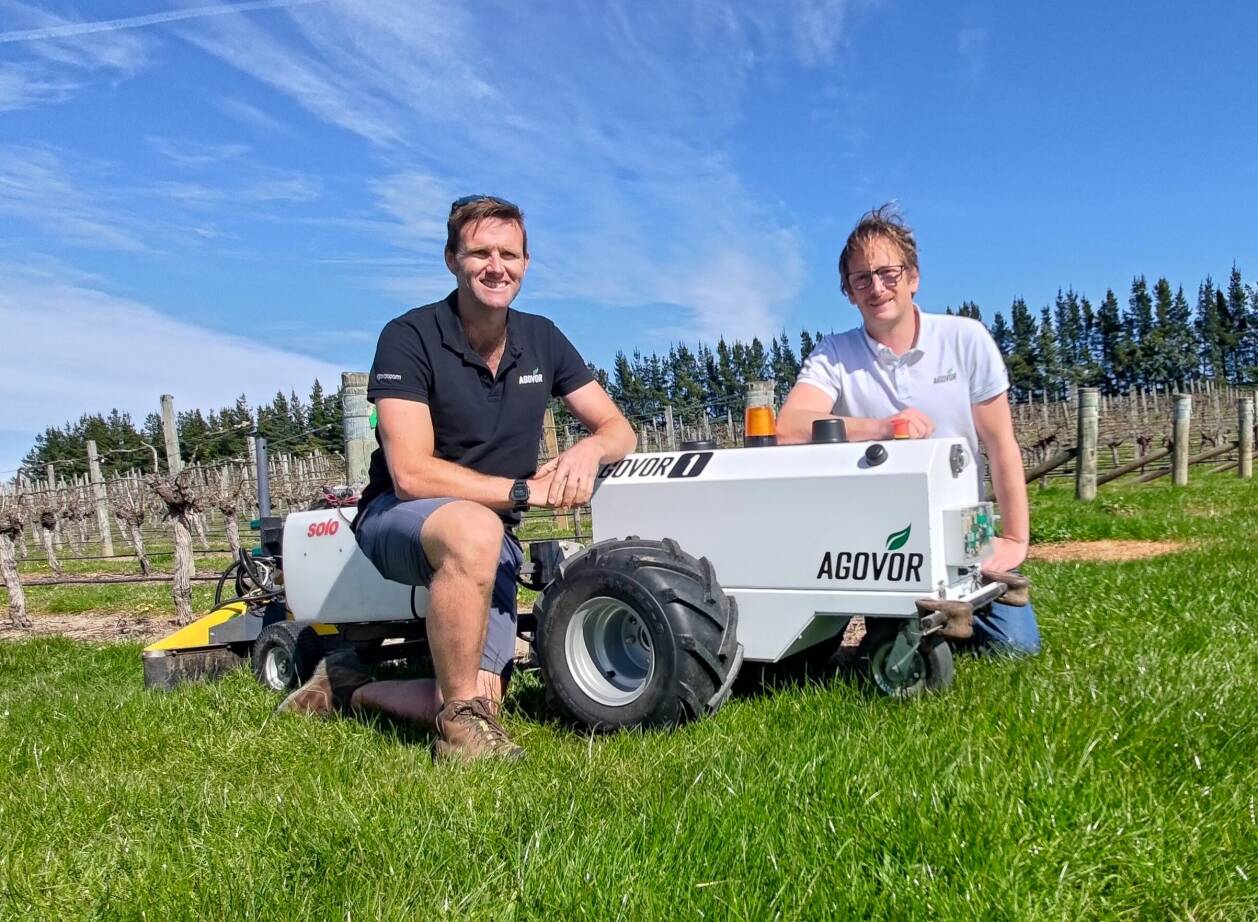
It’s all about the user: that is what ensures good uptake of an innovation and what has made GOVOR the robust solution it is today.
New Zealand-based AGOVOR was founded by Richard Beaumont, co-owner of Ardmore Nurseries Ltd., a wholesale plant nursery near Clevedon, Auckland, and automation engineering expert Simon Carroll. “As with many other innovations, Covid-19 was the catalyst. New Zealand was in a full lockdown, our nursery went from 30 to 5 staff, and we were only allowed to look after the plants. That meant about 5 acres each and a lot of repetitive maintenance tasks that needed to be done, like weeding. It got me thinking that we really should look for other solutions,” says Richard.
Richard teamed up with engineer Simon and over the next couple of years, the two men came up with a robot that could go up and down the nursery’s rows in the field. They had to tackle common field-grown nursery challenges, such as narrow rows, multiple plant varieties in one field with different foliage, and the soil, which goes through different phases and structures during the year. Soil compaction is the result of pressure on the soil from machinery, foot traffic, and other activities leading to reduced pore spaces and restricted root growth. It limits nutrient absorption, water infiltration, and ultimately affects crop health. Richard: “Soil compaction is a huge issue for many growers and there hasn’t really been an alternative to the heavy machinery like tractors that growers need to bring into their fields. We wanted to develop something that would be more sustainable and aid in decarbonizing current practices as well.”
The horticulture sector worldwide faces a pressing challenge: the lack of skilled labor, aggravated by the need for repetitive tasks. Additionally, open-field nurseries deals with another complex problem known as soil compaction. Fortunately, there are innovators addressing these challenges with technology that not only frees humans for more engaging tasks, but also promotes sustainability. Hauling, spraying, mowing, and cultivating: GOVOR®, the autonomous electric mini-tractor can do a variety of jobs, making it a valuable team member for nurseries seeking efficient solutions.
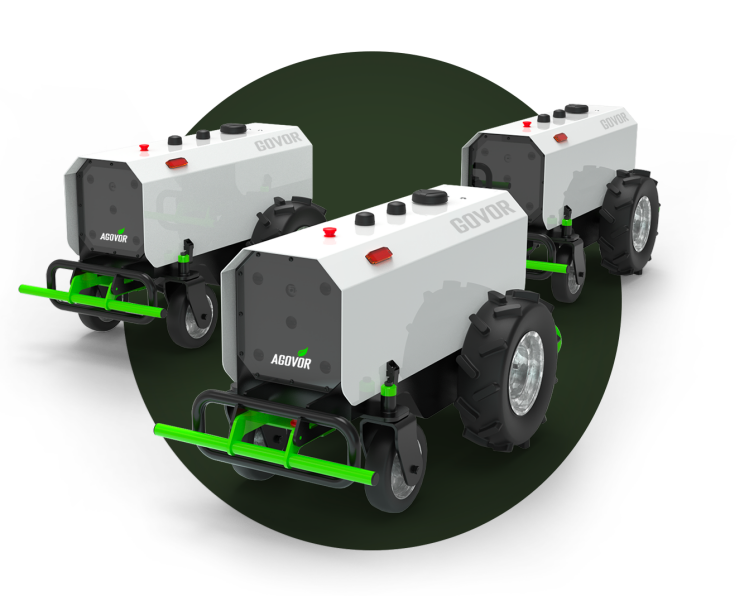
Meet The Electric Mini Tractor Transforming Horticulture

Back to world map
New Zealand